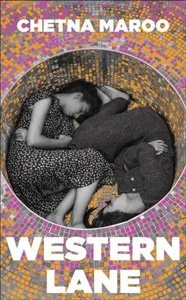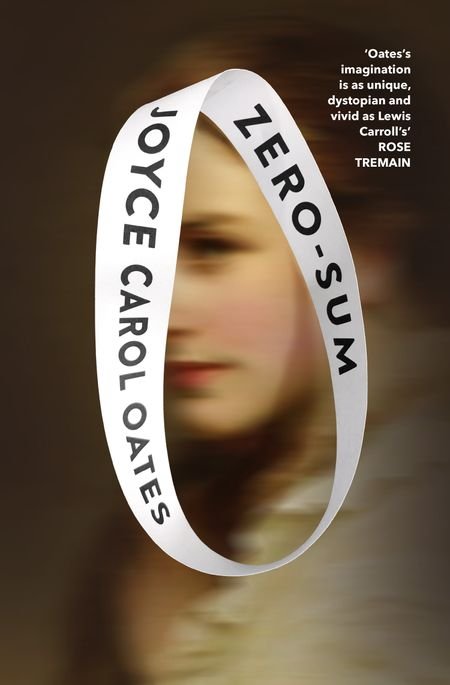If I had to sum up “Solenoid” in a one line review I'd say: this book makes reality wonderfully weird. It is one of the most brilliant pieces of fiction I've ever read. Though it's very long and dense with complicated passages that require a lot of attention, every line feels as if it's written with great urgency and as such I was completely gripped. The writing is also frequently surprising and beautiful. It made me want to read it slowly and savour its poetic nature and the odd imagery which made me think about life from a new angle. For instance, the narrator writes that when we dream we “sink into our visions' cistern of melted gold.” I copied out many many quotes while reading. At another point a man named Virgil asks “What are we doing inside this filthy, soft machine?” It's this kind of turn of phrase which is so refreshing and humorous as it gives a different way of considering what it's like to inhabit a body.
The narrator's obsessively-written notebook is mesmerising as it explorers his preoccupations in meticulous and fabulous detail. The text is rooted in life's big questions concerning the meaning of existence, the nature of being and the metaphysical. However, all this self-conscious lofty subject matter never feels too ponderous because it's presented with sincere emotion, creative verve and a sly sense of humour. It peels back the mundane surface of reality to reveal all the fears and wonder lurking underneath. If this book could be dismissed as naval-gazing, then it seems to meet this criticism by literally beginning with its unnamed narrator gazing at his naval and his account continues with vigorous self-scrutiny. By looking inward with such intensity and dedication all the unwieldy beasts of the unconscious are released and life's essential purpose is reasserted.
The book takes the form of day to day notes which the narrator compulsively records – not to produce an account to be read by others but “to try to understand what is happening to me, what labyrinth I am in, whose test I am subject to, and how I can answer to get out whole.” He sifts through his humble past, work as a reluctant teacher in Bucharest and his haunting dreams. Yet he also veers off to speculate on the infinite possible alternative paths his life might have taken and how he might break free from the confines of reality. He describes a formative event when he read an extended poem aloud at a literary salon. He'd poured all his life force into this poem and dreamed it'd be recognized as a work of genius. Hilariously, he dresses for the event in a certain way because his idea of being a writer came from watching Breakfast at Tiffany's as “the author in that film wore a turtleneck, a little frayed around the neck.” However, the group's reaction to his poem is devastating. It's ruthlessly criticised and he is utterly humiliated. This leads him to abandon his hope of becoming a writer and causes him to lose faith in the power of literature.
The nature of this book is itself a contradiction. It's both a novel and an anti-novel, auto-fiction and wild fantasy, dedicated disquisition and an ephemeral project. Equally, his very identity contains a lot of uncertainty especially when he recalls his youth. He might have had a twin brother who functions as a kind of doppelgänger. There's a curious exploration of gender where his mother sometimes dressed him as a girl and he asserts at one point: “Today, it feels as though I had been a girl in a previous life, as though the girl left a hole shaped like her body in the petrified ash of my mind”. Tantalizing lines such as this left me with so much to ponder concerning how our sense of self is constantly shifting and layered. There's also a lot of excruciating detail which recurs like a nightmare and body horror concerning his physical existence. As a caution: this is definitely not a book to be read before going to the dentist or getting a shot from a doctor! Yet, this adds to the sense of his being trapped in a particular physical form though he feels himself to be much more expansive and malleable.
There's also a sense of the larger society which weighs down his potential to grow. The absurd reality and spurious demands of the oppressive Communist government is described where “Each child must bring fifteen kilograms per month of paper and one hundred kilos of empty bottles and jars, all well washed, ready to reenter production.” There seem to be few possibilities for the future of these children who are forced to perform in nonsensical shows so it's not surprising they sneak off to a disused factory for some kind of arcane ritual. The larger adult population is also discontent and there is a group called the Picketists who not only protest against the government but against our mortality and natural phenomena such as “the swarms of diseases, fears, and horrors located in human flesh”. There are some quite vivid descriptions of other figures such as the head of the school, his fellow teachers and certain students, but the focal point is fairly constantly upon the narrator himself.
His monotonous existence consists of traveling between his home and work. This forms “The sad insanity of my life.” This is definitely a melancholic novel but the creative flair of its storytelling never makes it feel too weighty. At one point he comments: “Melancholy is also exciting, but in a different way than the stringent drunkenness of sex.” Though he's solitary by nature he isn't always entirely alone because he connects with a physics teacher who he has sex with. They discover a button next to his bed which allows them to levitate while having conjugal relations. However, their pairing isn't so much emotional as convenient like his job. Hilariously, he often can't even remember which classroom he teaches in or who his students are until he looks in his notebook. Yet, alongside the everydayness of this world there are portals into other labyrinthine spaces. From a disused factory with strange cavernous areas to a proliferation of endless rooms in his boat-shaped house to the micro world of dust mites.
This is where the novel's title comes into play. A solenoid is a metal coil which becomes surrounded with a magnetic field when an electric current is introduced. There are solenoids buried in the foundations of certain buildings around Bucharest and these form sorts of gateways which allow him to traverse the fourth dimension. I don't understand the science behind all this but the book possesses an internal logic which makes it convincing and also adds such fascinating mystery as it breaks the limits of reality and leads this story into some outlandish situations. It's so entertaining and it becomes almost hypnotic as the narrator leads the reader into such curious realms. There's also a kind of tragedy to it as his concentrated endeavour of recording all this must inevitably fail. The book explores the limitations of literature: “What I am writing here, evening after evening, in my house in the centre of my city, of my universe, of my world, is an anti-book, the forever obscure work of an anti-author. I am no one and I will stay that way, I am alone and there's no cure for being alone”. Yet, at the same time it's his only method for processing his life and asserting he exists. “My writing is a reflex of my dignity, it is my need to search for the world promised by my own mind, just as perfume is the promise of the many-layered rose.”
There are lines in here I also connect with so strongly as a reader because like the narrator I return to books again and again looking for worlds beyond my own experience. I know there's no definite answers which can be found in books and reading can sometimes feel addictive. He states at one point: “I love literature, I still love it, it's a vice I can't put down, a vice that will destroy me.” And there are some very tender moments when this book becomes almost confrontational. “After you've read tens of thousands of books, you can't help but ask yourself: while I was doing that, where did my life go?” What a way to induce panic in a reader like me surrounded by books which I've spent countless hours of my life reading! It forces me to consider all the actual living I've missed out on while inhabiting an imaginative life sparked by reading. It's intense, but it doesn't change my instinctual desire to read more and transcend the limitations of my own experience. And this novel reminds me of how the individual expands to encompass all of reality: “My mind dressed in flesh, my flesh dressed in the cosmos.”
So this book is extraordinary. It is one of the most brilliant books I've ever read. But it's not perfect. There are some sections which I didn't think worked quite as well. The parts about his ex-wife felt oddly truncated and undeveloped. There are extended sequences where he recounts dreams which felt overlong. In some parts he over-emphasised questions asking: what is reality? It's also all very rooted in a masculine point of view with all the trappings of that: he describes his sperm as “a liquid as sacred as blood” and in one section “at this moment I looked at her vulva with a kind of indifference, the way you look at a painting on the wall in your own room that you know so well you don't even notice it.” But I fully accept that all this is part of the parcel that is this narrator and he can't extract himself from his own individual point of view with all his failings and prejudices. Which really only made him feel more human – even when he inhabits the consciousness of a dust mite. There is so much more to say about this book and so many more quotes I could list. So maybe it's enough to say that reading “Solenoid” has been an enriching experience I will never forget.

























